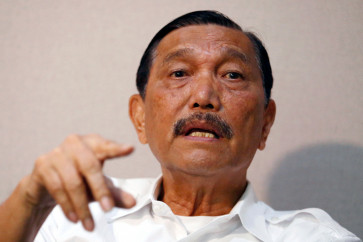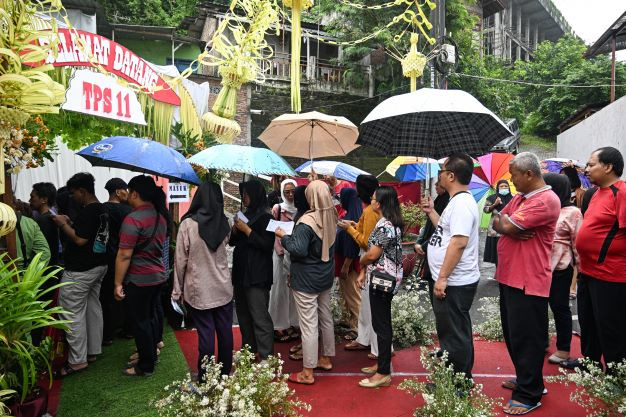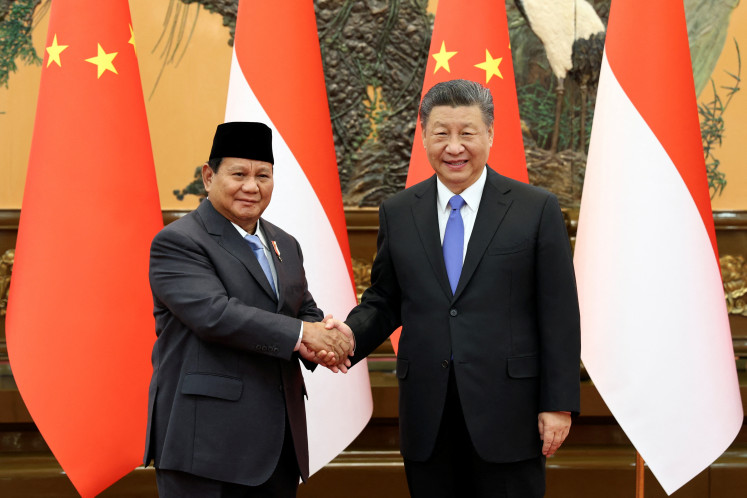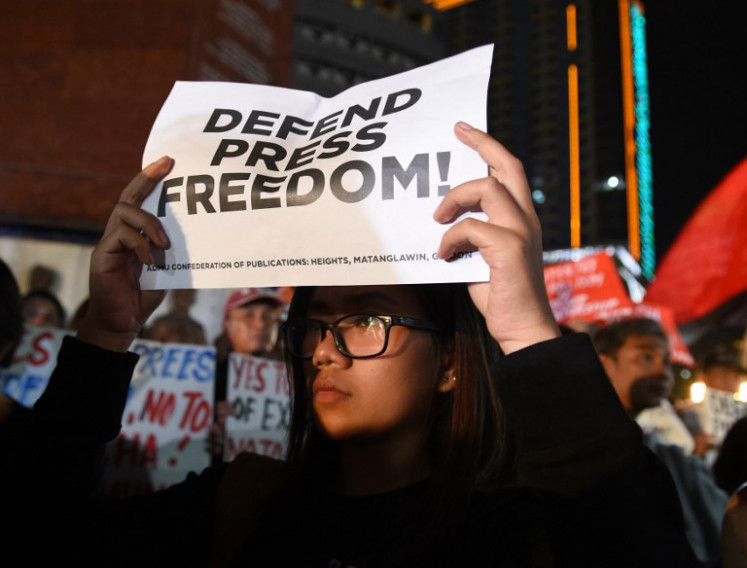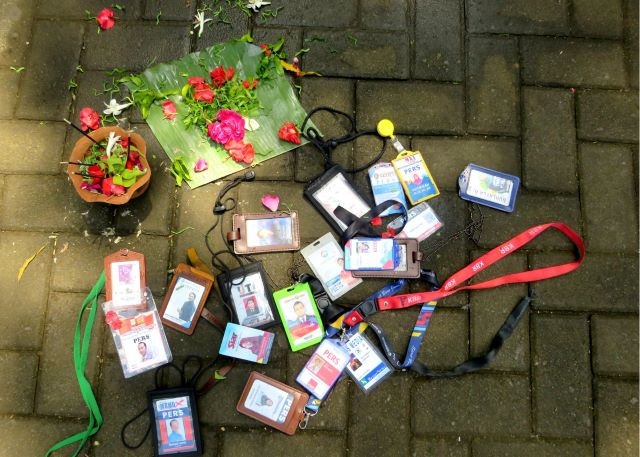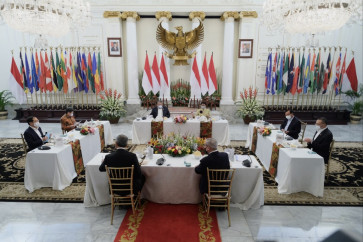Regional order and direction of Indonesian foreign policy
ASEAN would never have reached this far in dealing with the Myanmar crisis without Indonesia's assertive endeavors.
Change Size
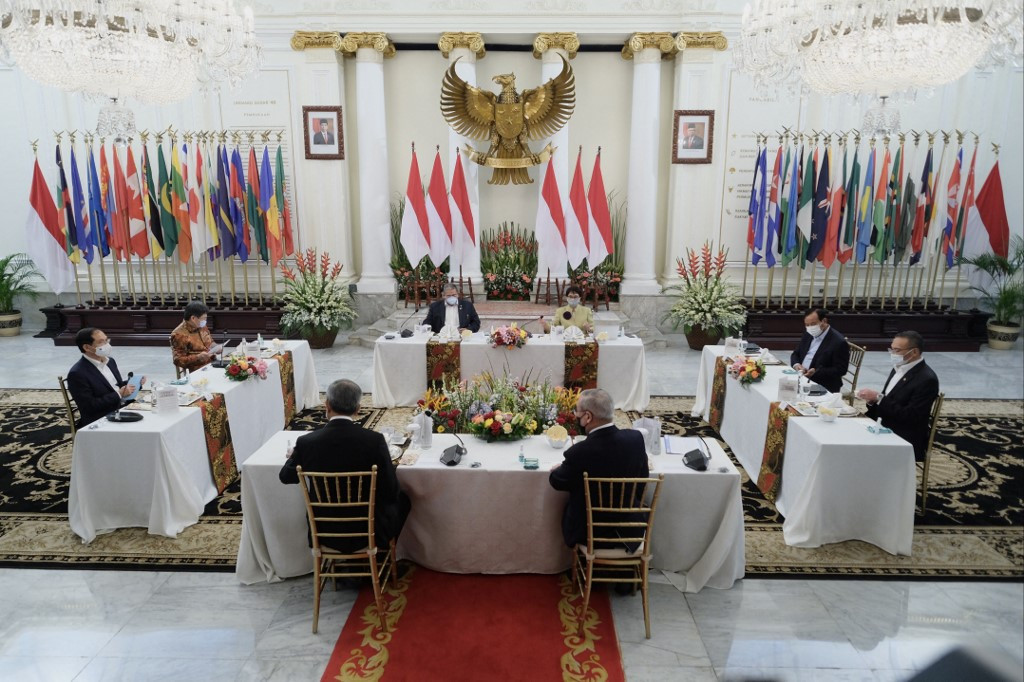 Indonesian Foreign Minister Retno Marsudi (top centre R) attends an informal dinner with her Association of Southeast Asian Nations (ASEAN) counterparts in Jakarta ahead of the ASEAN summit on the Myanmar crisis. The photo, taken on April 23, 2021, was released by the Indonesian Foreign Ministry. (AFP/Handout)
Indonesian Foreign Minister Retno Marsudi (top centre R) attends an informal dinner with her Association of Southeast Asian Nations (ASEAN) counterparts in Jakarta ahead of the ASEAN summit on the Myanmar crisis. The photo, taken on April 23, 2021, was released by the Indonesian Foreign Ministry. (AFP/Handout)
T
he 50th anniversary of the Centre for Strategic and International Studies (CSIS) was celebrated in a retrospective dialogue on regional order and the direction of Indonesian foreign policy. While most speakers agreed that the doctrine of “independent and active” foreign policy remained valid, they pondered how to translate the doctrine into a strategy that addresses the geopolitical shifts in Asia. The Jakarta Post (Sept. 15, 2021) summarized the dialogue in a phrase, that Jakarta should be “more active”.
It is rather unfortunate that the country’s vaccine diplomacy, which is unprecedented and “super-active” having produced tangible results – most of the participants of the dialogue had already been vaccinated – was not thoroughly discussed.
Being active should not necessarily mean rhetorically. Dave McRae of the Australian National University (ANU) described Indonesian foreign policy in 2014 as “more talk than walk” (Lowy Institute Analyses, 2014).
In the conduct of foreign policy, bureaucracy administers the “talk” into a working plan; the “walk” into the agenda of implementation. How far you “walk the talk” is measured through monitoring and evaluation (monev). In line with this monev, the CSIS concluded in 2018 that the Indonesian Foreign Ministry had managed to implement 90 percent of its working plan (CSIS, WPSINT-3/2018).
While every administration has different priorities, foreign policy is hardly segmented. An output of one administration might produce its outcome during the next. And an output will not always produce the expected outcome.
During the 2008 Cyclone Nargis, Myanmar’s military regime closed the gate for humanitarian assistance. Battling insurgencies for decades, the regime was security-obsessed. Indonesia pushed the Association of Southeast Asian Nations (ASEAN) to broker an agreement that managed to convince the generals to open access for international relief. That was a good political output and outcome.
In 2011, Indonesia offered its good offices for the Thailand-Cambodia conflict over Preah Vihear Temple. While the good offices brought some de-escalation, Indonesia’s plan to deploy a team of observers was aborted after resistance from Thailand. It was the International Court of Justice (ICJ) that eventually solved the problem – the optimum outcome.


